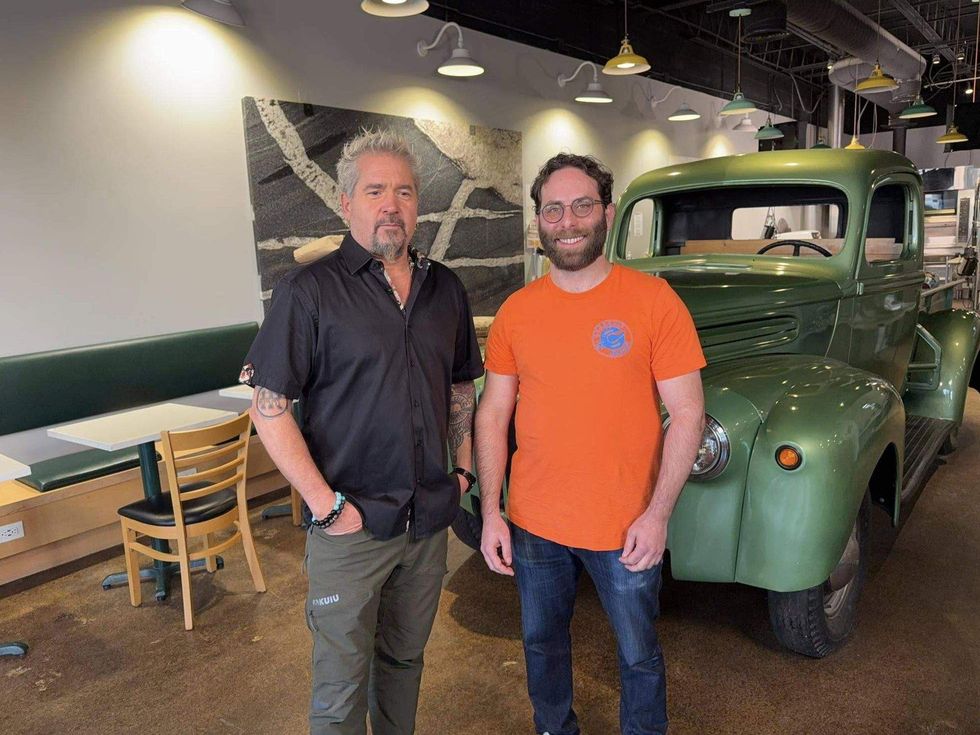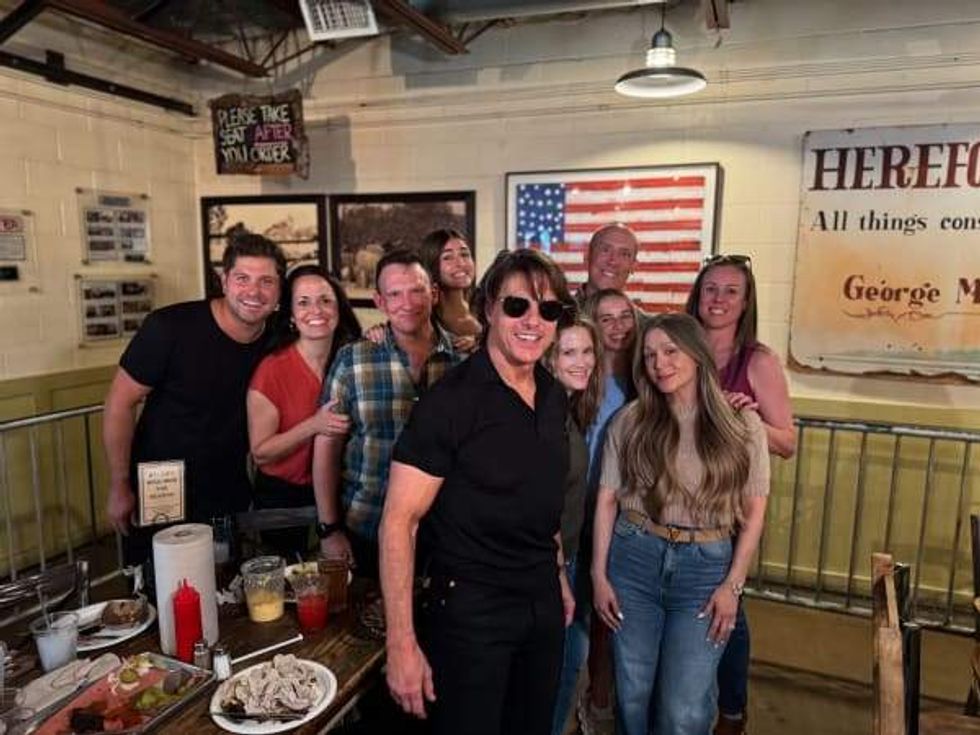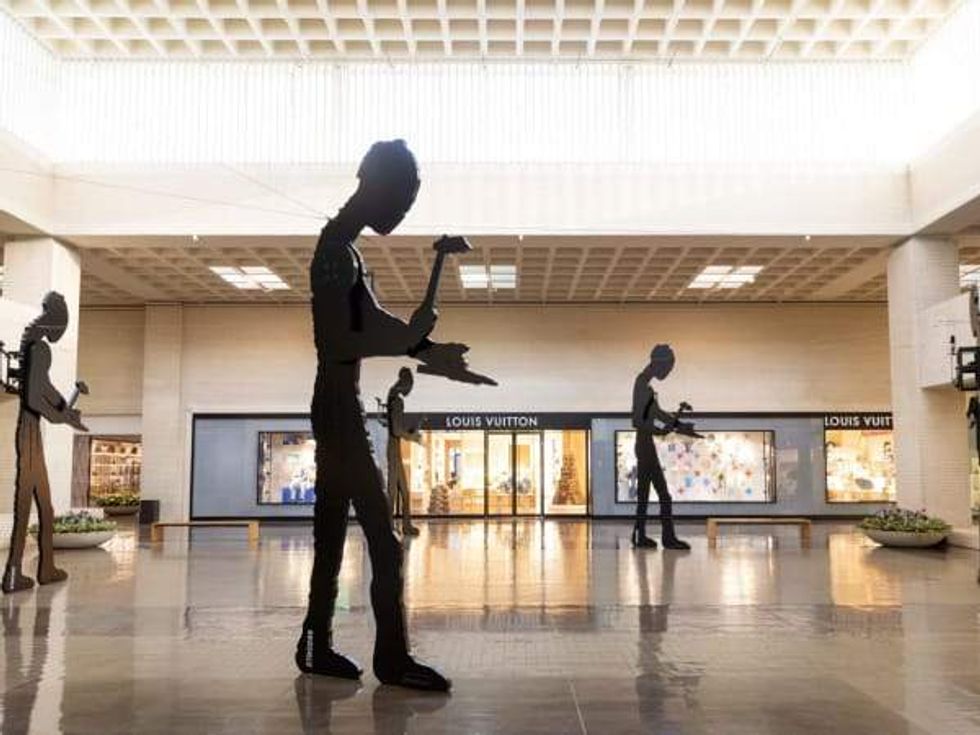Gabriel Allon returns
Best-selling author Daniel Silva discusses highly anticipated new book ahead of Dallas appearance

Acclaimed author Daniel Silva's latest thriller, Portrait of an Unknown Woman, has just been released, and if the past is precedent, there's no reason it won't become a New York Times bestseller — like so many others in Silva's Gabriel Allon series.
Yet, there's something different about this particular Gabriel Allon novel, in which the protagonist, the former art restorer turned director of the Israeli intelligence service and assassin, finds himself living quietly with his family in Venice, enjoying retirement and trying to put his violent past behind him. And then, that painting turns up. Is it real or a clever forgery? Can Gabriel figure it out before it ruins his friend's life?
Silva may answer some of those question when he makes a highly anticipated appearance Dallas this month. Local fans can catch him in discussion at the Aaron Family JCC on Monday, July 25. (Tickets, $40, are available here and include a signed copy of the book.)
Then he'll head to Houston, where he'll be in conversation with Jean Becker, former chief of staff to George H.W. Bush, at the Evelyn Rubenstein Jewish Community Center on Wednesday, July 27.
CultureMap caught up with the best-selling author to talk his new book and being back on the road again, after previous virtual events.
CultureMap: You're back on tour. How excited are you to be traveling again?
Daniel Silva: I'm very excited to do it. We thought about it very carefully and looked at the [COVID] numbers, and put some protocols in place. In its own weird way, though, it's still going to seem sort of virtual in that I can't sit and have a signing. That's the one big component that we'll be missing, those moments with readers, which is a shame, because hat's what I like best.
CM: As a reader, this book felt different. Maybe not so much a transition into something that Gabriel's going do next in his life, but certainly this was Gabriel in a whole different world. Did you think that you were going to get to this kind of a point, when you made your assassin an art restorer and a painter?
DS: Yeah. I actually wanted to get him to this point a long time ago, that the series would be much more art based than it became. My editor at the time really wanted him to be more violent character and to mix it up with these really, really bad, bad guys. I let [Gabriel] get drawn into the global war on terror.
From there, he got drawn into his long-running duel with the Russians and that really changed the series. I mean, Moscow Rules [published in 2008] was a very important book for me. This is what I always had in mind for the series as the final act, that I was going to return Gabriel to the art world.
The first thing that I wanted to do with this novel is to just sort of wall it off from Israeli intelligence. He's on his own, and I just enjoyed writing this book so much.
CM: Of course, Gabriel has had capers that involve the art world before now.
DS: Yes, I had books that started in the art world and then branched into, for instance, the Iran nuclear program. But, this one stayed in the art world and I did something that I wanted to do for a very long time.
CM: When we talked last year, we spoke about your love of classical music, which informed what you did in The Cellist. Are you an art lover, too?
DS: I wouldn't have handled [Gabriel] the way I have if I wasn't. Writing the series gave me a sort of an amateur master's degree. I'm fascinated by the business of art and I'm really fascinated by the dirty side of the art business that I've explored in the past.
CM: And that is where Portrait of an Unknown Woman is set.
DS: Yes. There are a lot of very, very, very fine and very reputable art dealers and galleries. But there are a lot of dirty, disreputable art dealers out there, too. And they will sell anything if they think they can make money. That's something that the book explores.
Money has always been at the heart of art, going back to the Renaissance, when Italian noblemen would hire artists to paint their portraits or their palazzos. And, of course, there's the relationship between art and the Catholic Church, which hired artists to decorate their churches.
CM: Did it feel different writing this novel, as opposed to the others in the series?
DM: I very deliberately reset character. In the first chapters, his wife won't let him work. She sends him out to explore [Venice]. So, he wanders the city and visits paintings he's restored there. And he is able to let go of these nights of blood and fire and he changes; his physical appearance changes a little bit.
I love the subtle changes that I was able to bring to the character. I love the fact that humor that found its way into the book totally by accident. I did not realize that it was going to such a rocket journey through the art world.
CM: What should fans expect when they come and see you in conversation in-person after all these virtual visits?
DS: I hope that it's both a relaxing, funny, and informative evening. It's gonna be interesting. You know, I literally have not been in public in three years.

 Guy Fieri and Oren Salomon Courtesy photo
Guy Fieri and Oren Salomon Courtesy photo  Tom Cruise in Dallas Tribal Cafe
Tom Cruise in Dallas Tribal Cafe  The 2026 FIFA World Cup will be played at AT&T Stadium in Arlington and other venues in the U.S., Mexico, and Canada. Photo courtesy of CONCACAF
The 2026 FIFA World Cup will be played at AT&T Stadium in Arlington and other venues in the U.S., Mexico, and Canada. Photo courtesy of CONCACAF  Hammering Men, 1982 NorthPark Center
Hammering Men, 1982 NorthPark Center